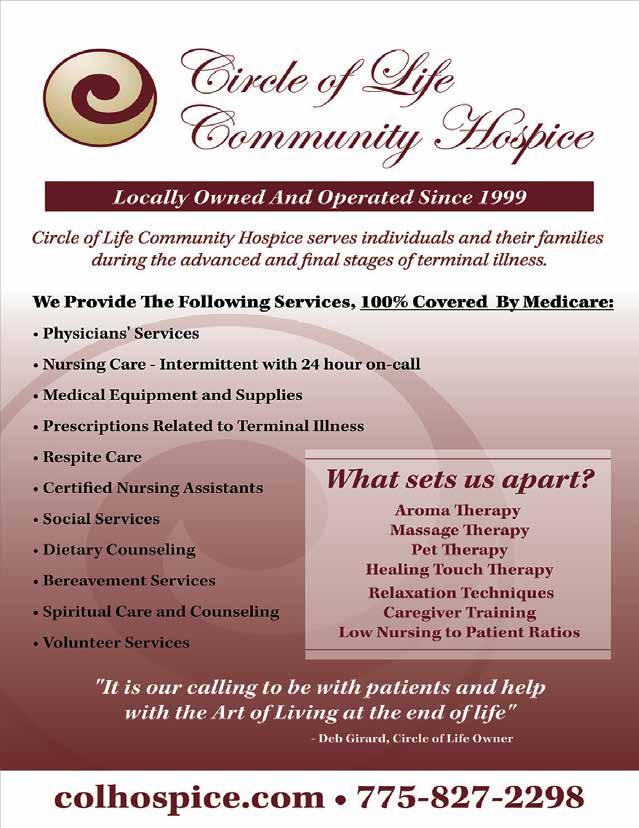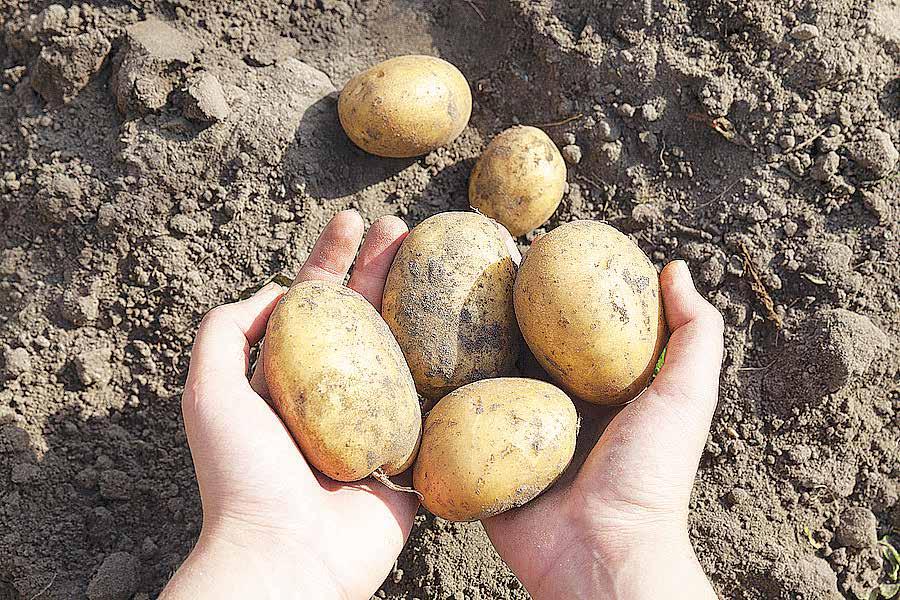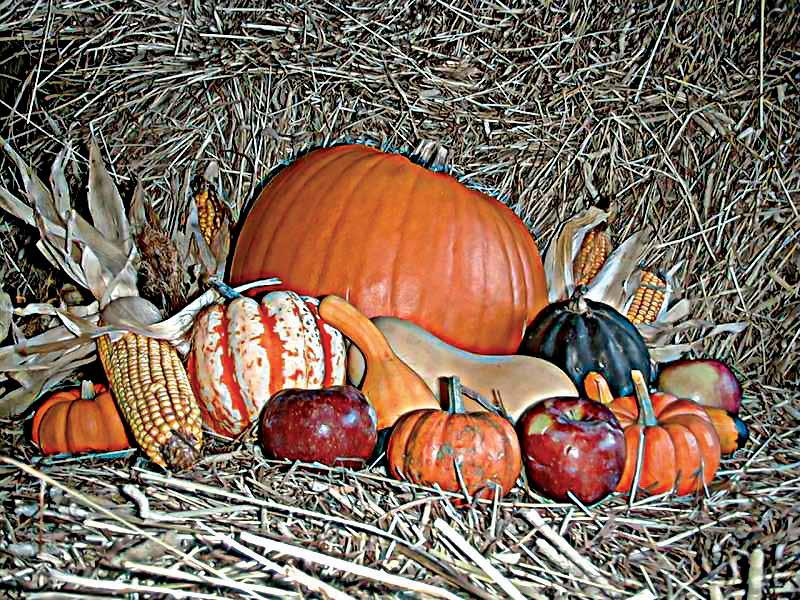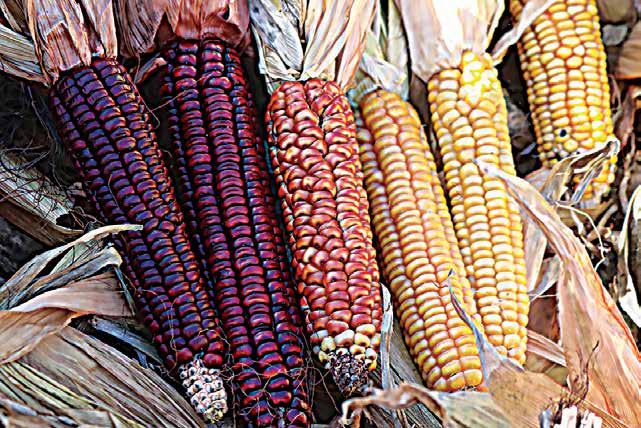
7 minute read
Teach Me to Grow
Dr. Larry Weiss Center for Healthy Aging
Advertisement
Larry Weiss This month’s article describes a program that was developed by three very innovative and industrious people who currently work on it and contributed significantly to writing this article: Augustin Jorquez, Marta Malone, and Michael Marcus. The program is “Teach Me To Grow Healthy: The Intergenerational Community Garden and Indigenous Foods Program”. Its mission is to create a usable community-oriented, culturally sensitive program that improves the exercise, mental health, nutritional support, and holistic care of Indigenous and Non-Native older adult and youth communities. The goal is to reduce food insecurity by creating a working organic forage farm seeking to create an innovative, sustainable food system for Native and Non-Native communities and form a central distribution of seeds, sprouts, and bulbs for future intergenerational community gardens. The Center for Healthy Aging recognizes and acknowledges the tragic disparities among American Indian/Alaskan Native, and Urban Indian Populations. According to the American Indian Health Service: The American Indian/Alaskan Native people have long experienced lower health status than other Americans. Lower life expectancy and the disproportionate disease burden exist due to inadequate education, poverty, discrimination in the delivery of health services, and cultural differences. These are the broad quality of life issues rooted in economic adversity and poor social conditions. (Adding Life page 9)

Nursing Home Visitation / from page 7 CMS’ Center for Clinical Standards and Quality. “That is why, now that millions of vaccines have been administered to nursing home residents and staff, and the number of COVID cases in nursing homes has dropped significantly, CMS is updating its visitation guidance to bring more families together safely. This is an important step that we are taking, as we continue to emphasize the importance of maintaining infection prevention practices, given the continued risk of transmission of COVID-19.” High vaccination rates among nursing home residents, and the diligence of committed nursing home staff to adhere to infection control protocols, which are enforced by CMS, have helped significantly reduce COVID-19 positivity rates and the risk of transmission in nursing homes. Although outbreaks increase the risk of COVID-19 transmission, as long as there is evidence that the outbreak is contained to a single unit or separate area of the facility, visitation can still occur. For additional details on the updated nursing home visitation guidance, visit: https://www.cms.gov/medicareprovider-enrollment-and-certificationsurveycertificationgeninfopolicy-and-memos-states-and/nursing-home-visitation-covid-19-revised
Given the higher health status enjoyed by most Americans, the lingering health disparities of American Indians and Alaska Natives are troubling. In trying to account for the disparities, health care experts, policymakers, and tribal leaders are looking at many factors that impact upon the health of Indian people, including the adequacy of funding for the Indian health care delivery system and eating healthy foods. The Center for Healthy Aging is a non-profit organization that I began 14 years ago and am hosting this new program. The Center integrates public, private, and philanthropic resources to help enhance wellness and provide models of care that demonstrate efficiencies and cost savings while improving the quality of life for elders. The Center has developed and evaluated initiatives to serve the needs of elders and their families. The staff has worked with private and public providers, planners, administrators, academic leaders, elders and families themselves to enhance the quality of life. Teach Me To Grow Healthy (TMTGH): The Intergenerational Community Garden Indigenous Foods Program is a project that emphasizes the importance of nurturing, self-sufficiency, and education. TMTGH seeks to create a usable community-oriented, culturally sensitive program that improves the exercise, mental health, nutritional support, and holistic care of Indigenous and Non-Native older adult and youth communities. TMTGH’s audience of focus includes Supplemental Nutrition Assistance Program (SNAP) eligible American Indian/Alaskan Native Urban Indian Population and Non-Native older adult and school-age youth communities. TMTGH plans to provide to the local food insecure populations, particularly those living in poverty. TMTGH will work with faith-based food pantries, powwows, senior coalitions, senior centers, and health fairs to identify and reach out to the most in need. TMTGH seeks to create a community-oriented, intergenerational community garden, promoting culturally sensitive indigenous food growing and nutrition program. TMTGH will increase healthy food access in the food pantries, nutritional education, and health promotion for individuals to reduce their risk of diet-related diseases. This program will offer lessons on how to create sustainable food gardens and prepare healthy meals using the food that is grown and harvested. TMTGH’s heart includes creating an intergenerational volunteer group of low-income elders and youth drawn from Native American Tribal area county senior centers, youth programs, local high schools, church youth groups, and other organizations to build, plant, maintain and harvest a community garden. Under the guidance of a Master Gardner and Program Director, professionals and volunteers will construct the community garden.

(Adding Life page 10)
Potatoes were grown in America before they became a staple in Ireland, and are considered an early indigenous food. Main indigenous vegetables are: squash, beans, corn, avocados, peppers, tomatoes, potatoes, sweet potatoes, and quinoa.
$2
PER RIDE
RTC’s FlexRIDE curbside-to-curbside public transit service is available in select areas of Sparks/Spanish Springs, Somersett / Verdi and the North Valleys.

Scan to learn more!
rtcwashoe.com Schedule your ride at your desired travel time and the ride can be expected to arrive to the curbside closest to your location within 8-15 minutes.
Download the free app on the App Store and Google Play.
Rides can be hailed or scheduled using the free RTC Washoe FlexRIDE app, or by calling (775) 335-0035. For more information: rtcwashoe.com/FlexRIDE
Your RTC. Our Community.
FREE 7-Day Pass through June 2021 when you sign up for Token Transit!
Adding Life / from page 9 Once the infrastructure is in place, volunteers will plant, maintain, and harvest the garden. For direct education, guided by a Nevada certified dietician, TMTGH will be utilizing the curricula “Dig-ln!”. For food management, TMTGH’s approach is to partner with food pantries and will utilize the Healthy Pantry initiative. Participants and others will benefit from nutrition education regarding indigenous foods through online training videos and in-person sessions (when that becomes possible) at powwows and other Native American community gatherings.













Indigenous vegetables are: squash, beans, corn, avocados, peppers, tomatoes, potatoes, sweet potatoes, and quinoa.
To help reduce food insecurity, TMTGH will be a working organic forage farm seeking to create an innovative, sustainable food system for Native and non-Native communities. TMTGH will work to revitalize indigenous plant species and the rich cultural knowledge of stories, songs, recipes, and practices that go along with indigenous foodways. The goal is to acquire this as a central distribution of seeds, sprouts, and bulbs for future intergenerational community gardens. There will be no costs, as they will be distributed among the Tribal communities. TMTGH will be an opportunity for Elders to share the rich culture around the cultivation of indigenous food while mentoring participating youth. Also, the TMTGH program has partnered with the University of Nevada, Reno, Master Gardeners, who will mentor youth from high schools, middle schools, and Tribal UNITY Youth Groups. To ensure the most successful programming, TMTGH plans to assess all participants, including volunteers, stakeholders, and partnering professionals as part of a program evaluation. The results will be used to provide information for future project years and sites. The TMTGH program is just beginning and will operate for at least two years under the current innovative structure. The TMTGH staff is planning a kickoff event on May 7th during Older Americans Month. The kick-off will be a Sunflower Growing Contest for the tallest, largest, and most colorful sunflower. More information about the contest will be provided on May 7th through virtual classes delivered by Master Gardener Randy Robison. Call Augustin Jorquez at 775-233-0268 or email him at TMTGH.CHA@gmail.com if you are interested. TMTGH will welcome volunteers and inquires to participate in the programming. Building this program and educating elders and youth on healthy indigenous foods is a fantastic way to “add life to years”.
Lawrence J. Weiss, Ph.D. is CEO of the Center for Healthy Aging. Dr. Weiss welcomes your comments on this column. Write to him at larryjweiss@gmail.com or c/o Center for Healthy Aging, 11 Fillmore Way, Reno, NV 89519.










